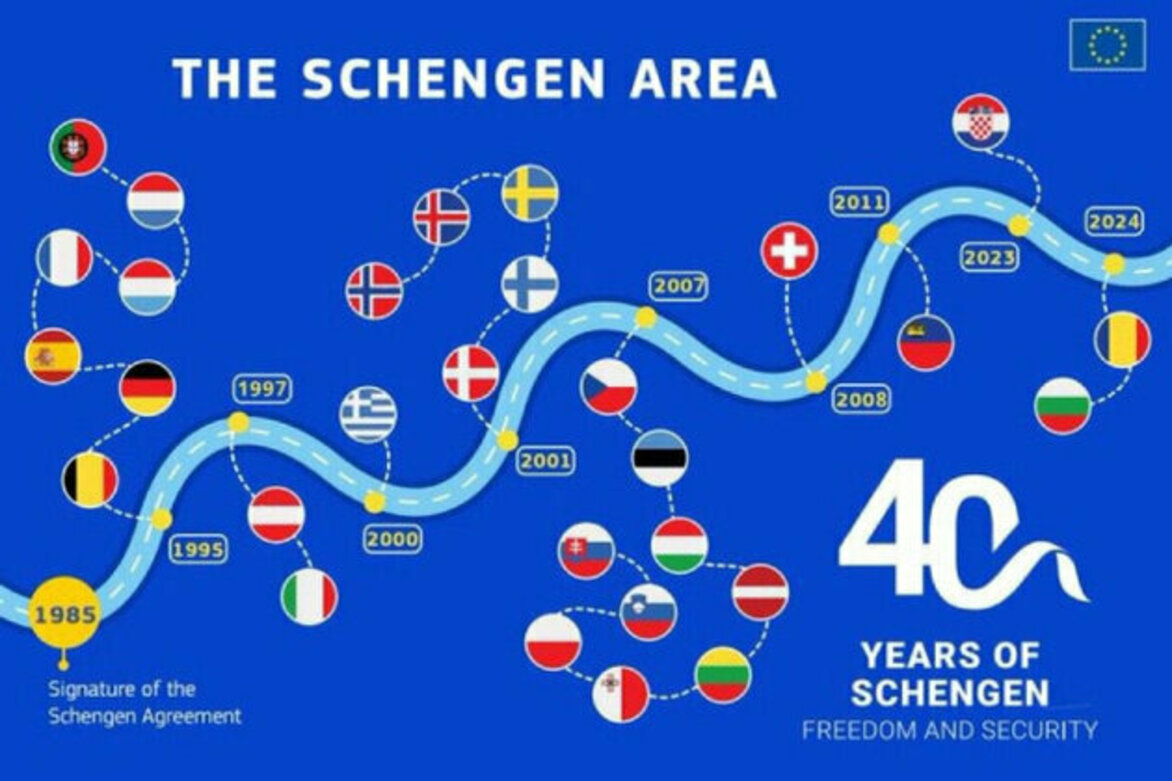Schengen at 40: A Milestone of Freedom and Unity in Europe
Novinite.com
16 Jun 2025

This week, the European Union celebrates a landmark moment in its history - the 40th anniversary of the Schengen Agreement, a deal that transformed life on the continent by removing internal borders and enabling the free movement of people. The agreement was signed on 14 June 1985 in the village of Schengen in Luxembourg by five founding countries: Belgium, France, Germany, Luxembourg, and the Netherlands.
At the time, the idea of open borders seemed bold, even radical. Today, that vision has shaped a space in which over 400 million people in 29 countries move freely - to work, study, travel, or simply visit - without having to wait in line at border crossings or show a passport.
Speaking on the occasion, Polish Interior Minister Tomasz Siemoniak underlined that the Schengen area represents more than just convenience. It's a symbol of shared European values. ?If we want Europeans to support the EU, they must feel that the values they cherish, especially freedom, are being upheld,? he said. For many who once lived under the restrictions of the Iron Curtain, the ability to travel freely across Europe remains one of the most visible and meaningful benefits the EU has delivered.
This year's anniversary carries particular significance for Bulgaria. After more than a decade of preparation and overcoming political resistance, Bulgaria - along with Romania - has now joined the Schengen area in full. It's a long-anticipated development that marks the end of a 13-year wait. European Commissioner for Home Affairs and Migration Magnus Brunner praised the achievement, calling 2025 a crucial year for Schengen and emphasizing that Bulgaria's accession is both earned and timely.
Brunner also pointed out that the success of Schengen is not self-sustaining. It's the result of continuous effort: close coordination between police forces, integrated border control systems, and shared training of security personnel. As the system grows, so do the challenges, which now require stronger external borders equipped with modern technology, a reliable and fair migration framework, and improved tools for law enforcement to deal with cross-border threats.
In the past forty years, Schengen has grown from a political experiment into one of the European Union's defining achievements. Every day, millions of people cross internal borders without issue. European citizens can travel, work, or settle in other member states with minimal bureaucracy. The agreement has also boosted tourism, facilitated trade, and expanded opportunities that once seemed far out of reach.
Yet the freedoms that Schengen offers cannot be taken for granted. Maintaining them means staying alert and responsive to new realities. Forty years after its signing, Schengen continues to reflect Europe's choice for openness - and with Bulgaria and Romania now fully on board, that choice has only grown stronger.
